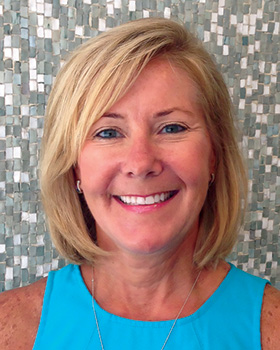As natural disasters increase, so do out-of-pocket costs CMS needs to recognize those costs, stakeholders say

By Theresa Flaherty, Managing Editor
Updated 10:28 AM CDT, Fri September 1, 2023
 WASHINGTON – With weather-related disasters seemingly more frequent and extreme, the HME industry remains frustrated that CMS doesn’t acknowledge the increased costs to DMEPOS suppliers, stakeholders say.
WASHINGTON – With weather-related disasters seemingly more frequent and extreme, the HME industry remains frustrated that CMS doesn’t acknowledge the increased costs to DMEPOS suppliers, stakeholders say.
A day after Hurricane Idalia made landfall in Florida, CMS announced flexibilities for affected residents needing HME; it followed the same pattern in the days after wildfires devastated Maui in August. But providers – who go above and beyond – often do so at their own expense, says Kim Brummett, senior vice president of regulatory affairs for AAHomecare.
“While Medicare will allow for some additional payment for replacement equipment or additional supplies, the costs a supplier incurs go beyond being able to bill a replacement wheelchair or other equipment to Medicare,” she said. “We have tried many times to work with CMS and the DME MACs to find a mechanism to reimburse DMEPOS suppliers for all of the additional costs created by disasters, to no avail.”
For providers on the frontlines during and in the aftermath of a disaster, the immediate focus is on getting patients served as quickly as possible, something Dale Shimabuku, president of Gammie HomeCare, which has locations on Maui, Kauai and Oahu, is currently in the thick of.
“We are hoping that through other governmental agencies there may be a way to recoup some of the generosity we've extended to customers (donated items, waiving of copayments, etc.),” she said. “We are too early in the process to be able to identify which agency would handle something like this or if it's even available.”
In Florida, Hurricane Idalia hit a sparsely populated region, creating far less damage than predicted. While that’s certainly good news, providers need to prep for every storm, incurring expenses like labor, cost of goods sold and hard costs, including gas and vehicles, that go unreimbursed, says Chris Townsend, owner of Palm Coast, Fla.-based Be Active, who sat on a state leaders disaster preparedness committee that was formed in 2021.
“The reimbursement currently paid by any and all payers does not provide any room for these types of expenses and will continue to crush the small business owner and strain the regional and national providers alike,” he said. “This is just one more reason the DME industry is so strained to provide the quality and level of service truly needed and deserved by the patients.” 
The industry needs to find a way to quantify the extra costs incurred during a disaster and demonstrate the challenges to CMS, says Brummett.
“The biggest concern or threat is if patients’ lives are endangered due to these disasters and are unable to receive necessary and life sustaining equipment and supplies,” she said. “A lot of these situations were unthinkable a few years ago.”
Comments